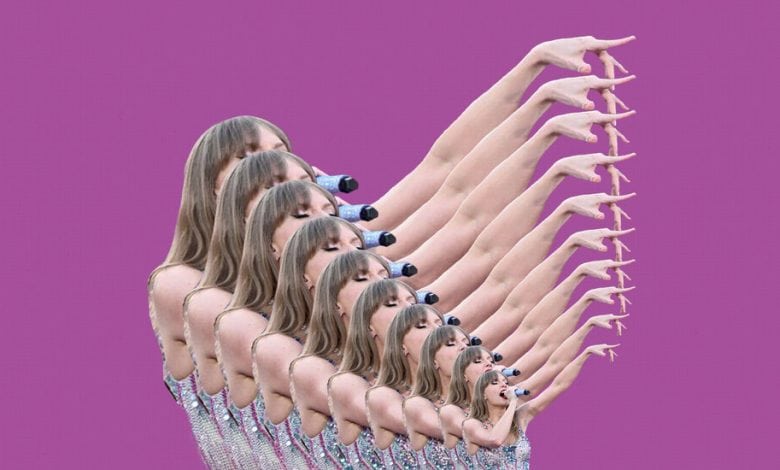Taylor Swift Needs to Become Other People

The biggest cultural news of the month is that a lot of people are kind of “meh” about Taylor Swift’s latest album (or albums, if you prefer to treat the 31-song release as a twofer). After spending the past few years illustrating how internet-era culture encourages a singular kind of superstardom, to the point where Swift has sometimes felt like the only celebrity singer in the world — or maybe that’s just how it feels when you’re driving a minivan with tween-age daughters making song requests — we’ve maybe, maybe finally hit a point of overextension and oversaturation.
Two takes on this interested me. One is from Damon Linker, who argues that Swift badly needs an editor and that her art is suffering because nobody is manufacturing scarcity, forcing her to kill her darlings and otherwise imposing what the limits of vinyl LP technology used to impose on singer-songwriters — namely, a requirement of curation:
Linker goes on to suggest that this process helps define an artist’s aesthetic, forcing them toward their greatest strengths and their most original material. For this reason, someone like Bruce Springsteen, who recorded many more songs than appeared on his most famous albums, might have been a weaker cultural presence — or so Linker argues — if he had just dumped every song he ever wrote in the laps of his most eager fans. The best work would have been lost inside the pretty good work, and the sense of Springsteen as a very specific kind of rock music legend might have been diminished.
For a very different analysis of Swift, consider these comments on X from Katherine Boyle, an Andreessen Horowitz venture capitalist, repurposing a take she offered in 2023. In our cultural environment, Boyle argues, being prolific is everything: “You can’t cede ground to competitors. You have to keep producing, keep sending a constant wave of stuff, that again, follows a consistent formula which helps your fans anticipate when it’s coming.”
So the fact that Swift constantly “ships” is a feature, not a bug: “A continuous stream of shipping must be maintained,” Boyle says. You can’t worry about having your best material lost in the churn, because the “most successful people in competitive industries win by taking more shots, not fewer. If Taylor writes 31 songs and 3 are memorable, she’s written three epic songs. No one remembers the bad ones, even if there’s more of them on a double album.”
These arguments seem diametrically opposed, but one could synthesize them by saying that Linker could be more correct about art (the requirements of curation might yield a more refined oeuvre) and Boyle could be more correct about commerce (the requirements of the media environment don’t allow the luxury of holding potential hits and bangers back).
Supposing that to be true, what should superstars do when they follow Boyle’s advice and people — well, some people at least, if not the truest fans — suddenly claim to feel exhausted? Or more specifically, what should Swift do if she feels like she needs to ship but the shipping hits a saturation point?